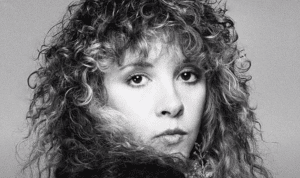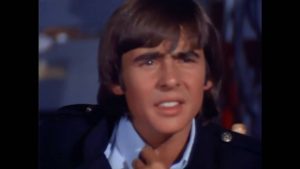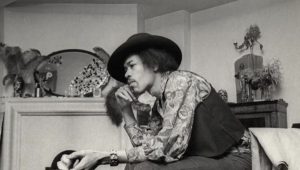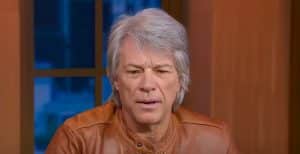12 Facts About The Dark Side Of 70s Sitcom Celebrities
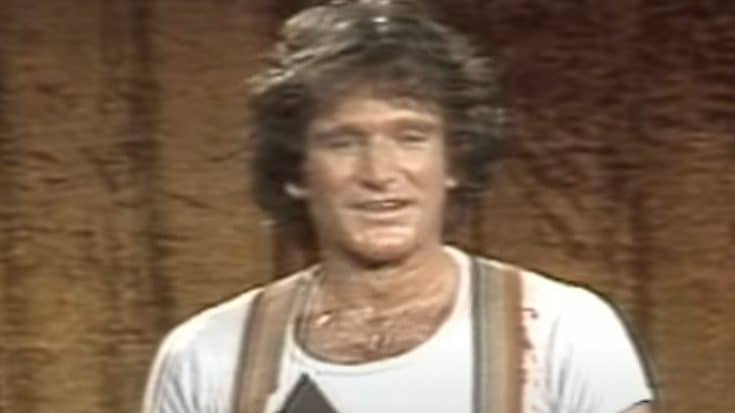
via George Schlatter Productions / Youtube
The bright and bubbly world of 1970s sitcoms was a stark contrast to the real lives of those who starred in them. These actors faced their own struggles, separate from the easy-to-solve problems of their on-screen characters. Here’s a look at the less glamorous side of celebrity showcased by some of the most iconic figures of ’70s sitcoms, highlighting their private struggles.
David Cassidy from The Partridge Family Speaks Out
David Cassidy, known for his role on “The Partridge Family,” struggled with his addiction to alcohol. In his own words at an event in 2008, he admitted to the crowd that he had a problem. “Tonight, I am publicly stating that I am an alcoholic,” Cassidy said. Despite attempts to get sober and even suggesting that his faltering health was due to dementia, Cassidy later opened up about the truth. “I lied about my drinking,” he confessed. “I did this to myself to cover up the sadness and the emptiness.” Unfortunately, his battle with alcohol contributed to his death in 2017.
Fred Berry’s Life After “What’s Happening!!”
Fred Berry, famously known as Rerun on the show “What’s Happening!!”, found that fame was not an easy path for him. Berry revealed in a 1996 interview with People magazine how the success had negatively impacted his life. “I was a millionaire by the time I was 29,” he said. “The stress of success got to me. And I got heavily into drugs and alcohol. I was empty inside.” Despite this rough period, he managed to turn his life around in 1985 when he became sober and started preaching as a Christian minister. On a personal front, Berry’s love life was turbulent; he married six times, with some marriages occurring twice with the same person. Berry passed away in 2003.
These stories remind us that behind the laughter and cheerful scenes on TV, the actors who brought joy to so many often grappled with serious and personal challenges. The lives of these 70s sitcom stars were much more complex than what was scripted for their characters.
Erin Moran’s Downfall After Happy Days
Erin Moran, known for playing Joanie on the hit show “Happy Days,” struggled after the series ended. She landed a few roles in shows like “Murder, She Wrote” and “The Love Boat,” but then disappeared from screens for a decade. Moran’s life took a turn for the worse in 2010 when she lost her home to foreclosure and was evicted. After moving in with her mother-in-law, Moran was kicked out for her intense partying. She then lived in motels, supporting herself on royalties from “Happy Days.” Tragically, her health took a major hit in 2016, when she was diagnosed with squamous cell carcinoma, a variety of cancer that left her unable to speak by 2017. She was found dead in Indiana at the age of 56.
Jeff Conaway’s Battle with Addictions
Jeff Conaway, known for his role as Kenickie in the film “Grease” and as Bobby Wheeler in the show “Taxi,” had troubles of his own. He left “Taxi” in 1982 due to dissatisfaction with his character’s development. However, according to Sam Simon, a writer on “Taxi,” Conaway was actually fired after he was found heavily intoxicated in his dressing room.
After “Taxi,” Conaway’s career took a downhill turn, leading him to the VH1’s weight loss contest “Celebrity Fit Club” in 2006. But he left the show after three episodes to enter a substance abuse rehabilitation program. His struggles continued in 2010 when he broke multiple bones in a fall leading to a painkiller addiction. Sadly, Conaway’s story ended in 2011 when he succumbed to a medication overdose at 60.
Mary Tyler Moore’s Battle with Diabetes
Known for her eponymous show “The Mary Tyler Moore,” this comedy queen was diagnosed with type 1 diabetes at the pinnacle of her career. According to a statement from her husband, Dr. Robert Levine, her struggle with disease gradually worsened over time. “What she was never able to overcome was the vision-stealing impact of her diabetic eye disease,” Levine revealed in an interview with JDRF. Her impaired vision made even the most basic activities challenging, like walking across a room or being physically active in low light.
Her vision deteriorated such that she was almost entirely blind during the “Mary Tyler Moore Show” reunion on the show “Hot in Cleveland” in 2013. Levine shared with People how everyone had to accommodate her during the shoot. “We had to sit her at the table — everyone came to her,” he said. Moore’s struggle concluded with her passing in 2017 after having battled this debilitating disease for decades.
Red Foxx’s Financial Struggles
Red Foxx, famous as the stand-up comedian and star of “Sanford and Son,” was also fighting his struggles, albeit of a different nature — deep financial debt. Despite earning significantly from his hit show, Foxx found himself drowning in a sea of debt and unpaid taxes. In 1983, Foxx declared bankruptcy. Six years later, he was further accused of avoiding taxes by the IRS, resulting in the seizure and auction of his property and possessions.
In an unfortunate turn of events, Foxx passed away in 1991, on the premises of his sitcom “The Royal Family.” At the time of his death, Foxx was still heavily indebted, owing the IRS a remarkable $3.6 million.
The Disturbing Incident Involving MAS*H Star Harry Morgan
Harry Morgan, celebrated for his role as Col. Sherman T. Potter on “MAS*H,” faced a worrying accusation that stood in stark contrast to the beloved characters he portrayed. In July 1996, at the age of 81, Morgan found himself in a deeply troubling situation when police were called to his home. According to the officers, screams prompted them to intervene, revealing Morgan’s wife, Barbara, with injuries significant enough to require hospital care. “Barbara said that her husband had been arguing with her at a dinner party before they went home, where things got physical,” reports indicated.
The resolution of this incident was equally unexpected. Charged with misdemeanor spousal battery, Morgan managed to sidestep further legal consequences by completing a court-approved domestic violence course, leading a West Los Angeles Municipal Court judge to dismiss the charge.
Behind the Scenes of “Bridget Loves Bernie”
On the surface, “Bridget Loves Bernie” was a groundbreaking show that tackled the complexities of an interfaith marriage, capturing the hearts of viewers and becoming the most-watched new series of its time. However, the sitcom found itself embroiled in controversy. According to Rabbi Wolfe Kelman of the Rabbinical Assembly of America, the series was “An insult to some of the most sacred values of both the Jewish and Catholic religions.” This sentiment led various religious groups to demand the show’s cancellation, criticizing it for perpetuating harmful stereotypes.
The off-screen life of co-stars Meredith Baxter and David Birney, who married after playing the interfaith couple on screen, was marred by similar darkness. Baxter described her marriage as “toxic and physically violent,” revealing the suddenness and confusion of the abuse in her book, “Untitled.” To cope, she turned to alcohol, not finding sobriety until 1990, after both her marriage and the show had ended.
The Unexpected Turn in Doris Day’s Career
Doris Day, a shining star of the late 1940s, found herself blindsided by an unexpected turn in her career path. Despite her success in the film industry with notable hits such as “With Six You Get Eggroll” and “Where Were You When the Lights Went Out?” in 1968, Day transitioned to television without her consent. Her husband and manager, Martin Melcher, arranged for her to star in “The Doris Day Show” on CBS, a commitment she discovered only after his death. “All without anyone ever asking me,” Day expressed her surprise in a 1996 interview with OK! magazine (via Express).
Following Melcher’s death, Day faced financial ruin due to his mismanagement and the deceit of lawyer Jerome Rosenthal, who embezzled funds and made poor investments with her money. Despite the potential to walk away from her sitcom obligations, Day needed the income. Her legal battle against Rosenthal concluded in 1974, a year after her show ended, with the court awarding her a significant sum, although she received only a portion. Doris Day’s illustrious acting career concluded with “The Doris Day Show,” and she passed away in 2019 at 97.
Ron Howard’s Strategic Move to “Happy Days”
Ron Howard, familiar to audiences since his childhood roles, especially as Opie Taylor in “The Andy Griffith Show,” found himself facing the Vietnam draft. By 1972, after experimenting with various TV roles, Howard had the chance to join “Love and the Happy Days,” a pilot that would eventually become the beloved “Happy Days” series. However, Howard was not particularly eager to commit to another long TV stint.
His reluctance was overshadowed by a more pressing concern: the draft. With a low draft number, Howard’s chances of being called to service were high. “If your employment was directly related to the employment of 30 or more people, you could get a work deferment,” Howard explained his decision-making process in an interview with the Television Academy. This situation made accepting a role in “Happy Days” not just a career move but a strategic decision to avoid military service.
Ironically, the draft was eliminated a few months after Howard filmed his pilot, and in 1974, “Happy Days” was launched as a series, setting Howard on a path to become one of television’s most cherished actors.
Robin Williams’ Turbulent Times on “Mork & Mindy”
In the late 1970s, Robin Williams skyrocketed to fame with his dynamic portrayal of Mork, an eccentric alien on the sitcom “Mork & Mindy.” Despite the laughter Williams brought to screens, his personal struggles cast a shadow over the show’s set. In 1988, Williams opened up to People, sharing, “Cocaine for me was a place to hide… It slowed me down.” His battle with substance abuse escalated during the show’s run until a pivotal moment in 1982 marked by personal turmoil and the tragic loss of a close friend prompted him to quit using drugs and alcohol.
However, Williams’ behavior on set during his period of heavy cocaine use has been a topic of contention. Pam Dawber, who played Mindy, recounted in David Itzkoff’s biography “Robin,” “He’d look at you, really playful, like a puppy… And then he’d grab your t*** and then run away.” This environment of inappropriate conduct was corroborated by others involved in the show, including the director and producer, painting a picture of a workplace culture drastically different from today’s standards.
Cindy Williams’ Departure from “Laverne & Shirley”
On another popular sitcom of the era, “Laverne & Shirley,” Cindy Williams’ sudden exit caused a stir. As the show was already experiencing a dip in viewership, losing one half of the beloved duo hinted at deeper issues behind the scenes. Williams’ pregnancy in 1982 became a turning point. Initially, the show’s producers seemed accommodating, even adjusting storylines and schedules to support her. However, the situation deteriorated, leading to disputes over her contract and allegations that producers were trying to ease her out to refocus the show around Penny Marshall, who played Laverne.
Williams later filed a lawsuit, claiming unfair treatment, which was settled quietly. She did not return to “Laverne & Shirley,” signaling the end of the iconic partnership that had once defined the show.




